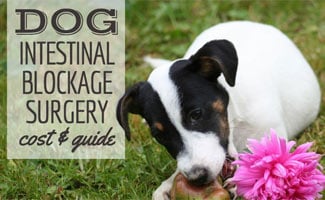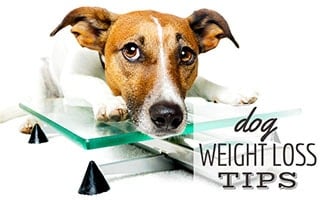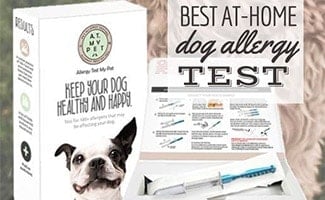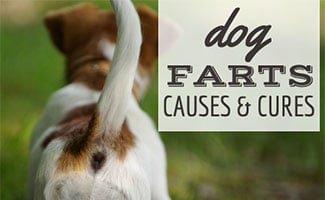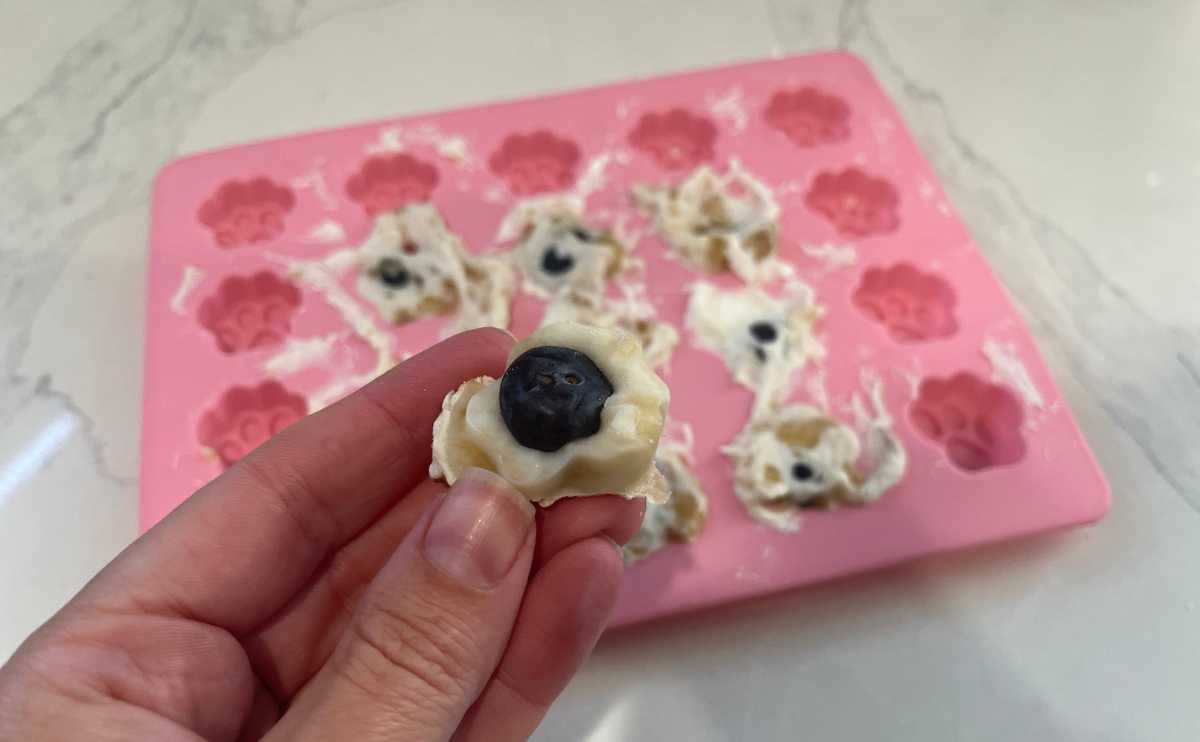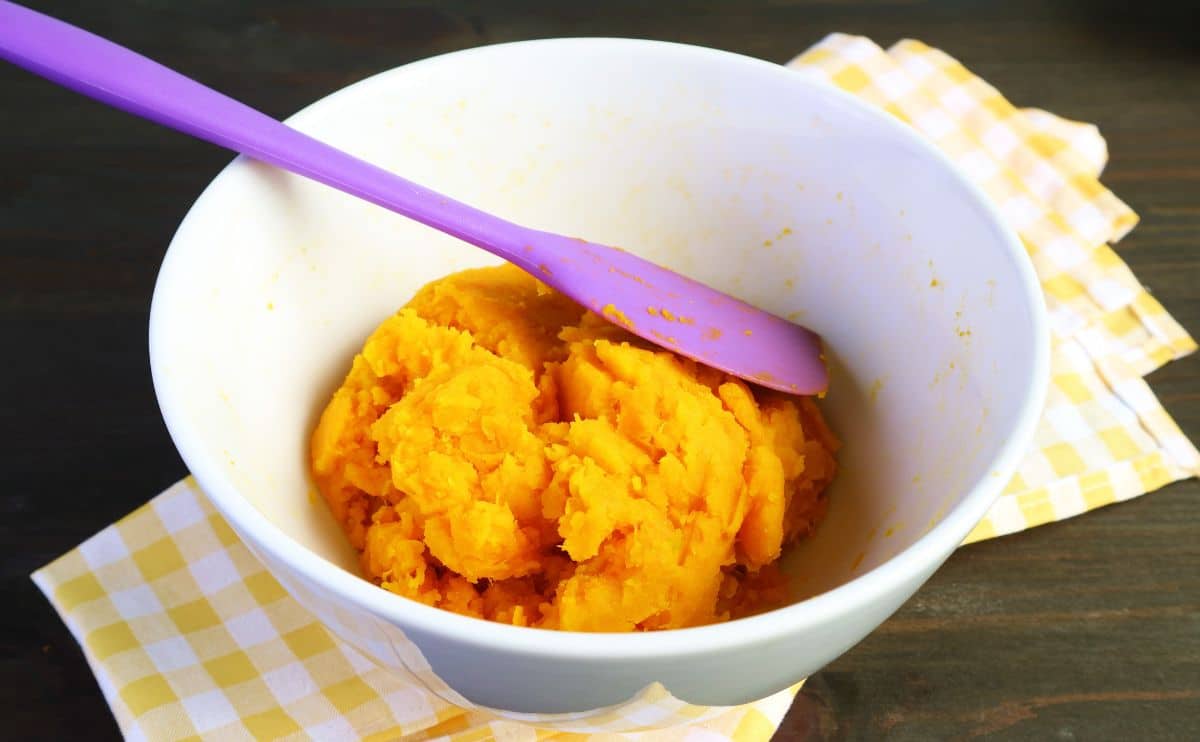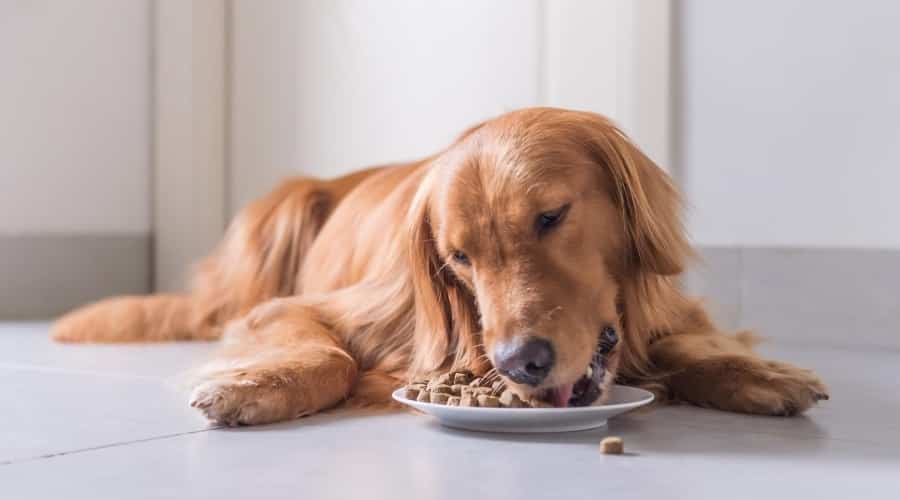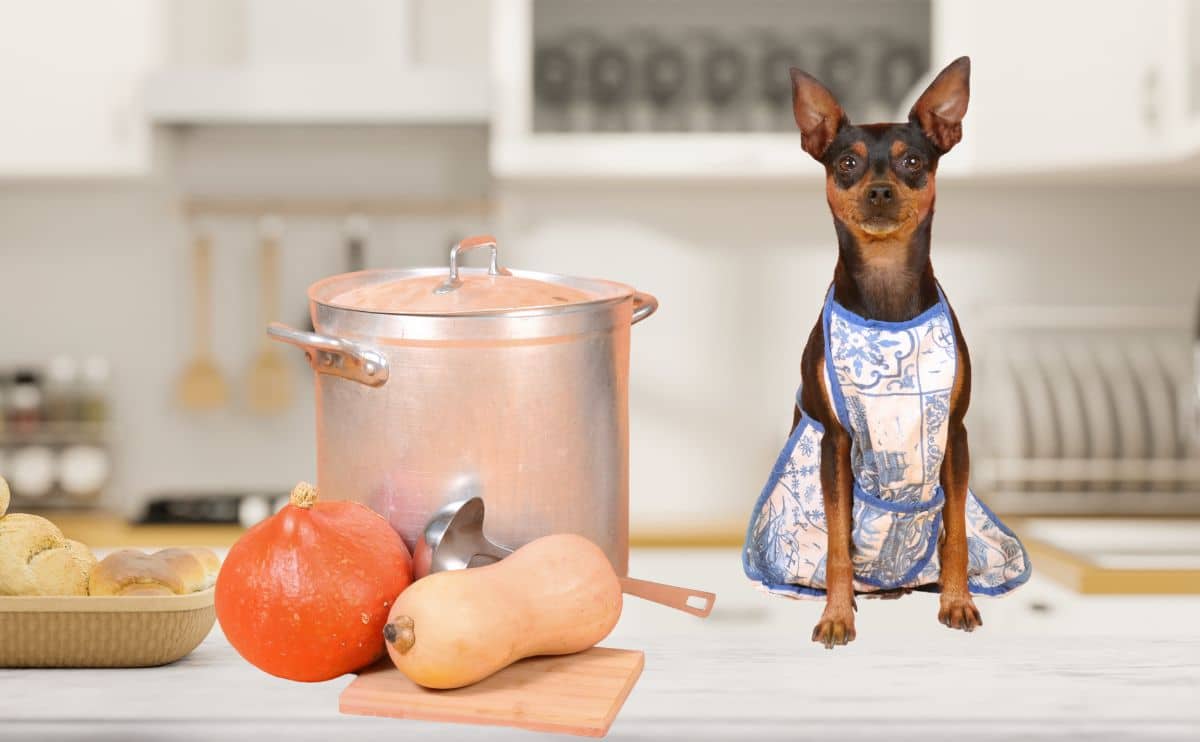Can Dogs Eat Bread? We Look At Banana, Wheat, Garlic, Rye, Sourdough, White, Crust, Whole Wheat, Pumpkin, Pita, And More
When you purchase through links on our site, we may earn a commission. Here’s how it works.
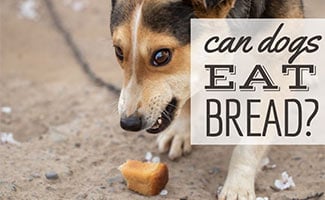
Bread is a pantry staple. Restaurants often bring you a basket of rolls, cornbread or sliced baguette to enjoy before your meal. And loaves are easy to freeze and use for all sorts of sandwiches. But is bread safe for dogs? Find out if you can sneak them a slice under the table.
Table of Contents
Can You Give Dogs Bread?
First off, is bread okay for dogs? In small amounts, plain, white, and wheat bread should be fine (as long as your dog doesn’t have any allergies).
In fact, in particular situations, your vet might even recommend you give your dog a slice of soft, white bread:
- If your dog has ingested something toxic, bread can help absorb the substance from his bloodstream. Learn more about the symptoms of poisoning in dogs.
- If your dog has swallowed something hard like a bone or a stick and needs help passing it through his system, bread can be an effective digestion aid. Find out more about gastrointestinal (GI) obstructions and how to treat them.
Should dogs eat bread on a regular basis? Giving your dog bread regularly is not recommended.
Is Bread Bad For Dogs?
So while dogs can eat bread, does that mean that bread is good for them? Similar to humans, bread isn’t nutritionally beneficial for dogs. It’s full of carbs, and too much can cause your dog to become overweight. In addition, yeast rises in bread, so it can also expand within your dog’s stomach.
A little bite or two is harmless, but if your dog ate a loaf of bread, then there’s cause for concern. Too much could rupture a dog’s stomach and intestines. In addition, yeast dough is dangerous because as it ferments, it makes alcohol, which could lead to alcohol poisoning.
What Types Of Bread Can Dogs Eat?
Here’s a list of common bread types and if they are okay for dogs to eat or not.
Can Dogs Eat White Bread?
Yes, this is the safest kind to give your dog.
Can Dogs Eat Wheat Bread?
Some dogs can have allergic reactions to wheat. We suggest you do an at-home allergy test before giving your dog wheat bread to make sure your pup doesn’t have any allergies. If not, then small amounts are okay.
Can Dogs Eat Rye Bread?
In addition to white and wheat bread, rye bread is perfectly fine for dogs without wheat allergies to nibble on in small quantities.
Can Dogs Eat Sourdough Bread?
Cooked sourdough bread shouldn’t be an issue, but don’t let your dog get his paws on the raw dough. The yeast can wreak havoc on your dog’s digestive system.
Can Dogs Eat Banana Bread?
Dogs love bananas, but what about banana bread? If you give your dog sweet bread like banana bread, make sure you check the ingredient label for xylitol, which is a sugar substitute found in some baked goods. Xylitol and the same plant-derived subtances called “birch sugar” or “birch sap” are extremely toxic to dogs. Even in small amounts, these ingredients can cause low blood sugar, seizures, liver failure, and even death for your pup.
Bread with added sweeteners also might contain corn syrup, and too much sugar for your pup can lead to dental issues, obesity, and even diabetes.
Avoid Feeding Your Dog Raisins
Banana bread sometimes contains raisins which are highly toxic for dogs and can cause kidney failure. Just one raisin can make a dog ill. Do not give your dog banana bread with raisins in it.
Can Dogs Eat Pumpkin Bread?
Pumpkin is perfectly safe for pups, but too much can cause diarrhea and loose stools due to the high level of fiber. Like banana bread, be sure there is no xylitol in the ingredients and go easy on the portions due to the higher calories and sugar.
Can Dogs Eat Garlic Bread?
Garlic and garlic bread are not recommended for dogs. Similar to onions (which are toxic for dogs), garlic is known to kill a dog’s red blood cell count, causing anemia, weakness, diarrhea, vomiting, and trouble breathing. So, feeding anything from the allium family (onions, garlic, leeks, scallions, chives, shallots) is unsafe for dogs.
Can Dogs Eat Bread And Butter?
Butter contains salt. Too much salt may lead to sodium ion poisoning, which can result in vomiting, diarrhea, depression, tremors, increased temperature, seizures, and even death.
While a small dose of butter isn’t going to kill your dog, you could get some smelly farts and some nasty cases of diarrhea. Milk and dairy products can cause digestive problems as well as trigger food allergies.
What Should I Do If My Dog Eats Bread?
If your dog eats bread, watch for signs or symptoms of concern, including:
- Discomfort and bloating
- Gas
- Upset stomach
One or two bites of plain white bread without spices, sugar, or butter shouldn’t be too much of a cause for concern. Just prevent your dog from eating it on a regular basis. If your dog ate a loaf of bread, contact your vet.
What If My Dog Ate Moldy Bread?

If your dog eats even a little bit of old or moldy bread, you should call your vet immediately for advice. Can’t reach your vet? Contact the Pet Poison Helpline at 1-855-764-7661 or chat with a veterinary professional live via JustAnswer (24 hours a day, 7 days a week).
What Other Foods Can Dogs Eat?
While most nuts are a no-no, a variety of veggies and fruits are on the safe side and excellent sources of vitamins and nutrients for dogs. But, do you know which ones are safe vs toxic? Be sure to educate yourself on which foods are and aren’t safe for dogs to eat and drink and what to do if your dog has an upset stomach.
